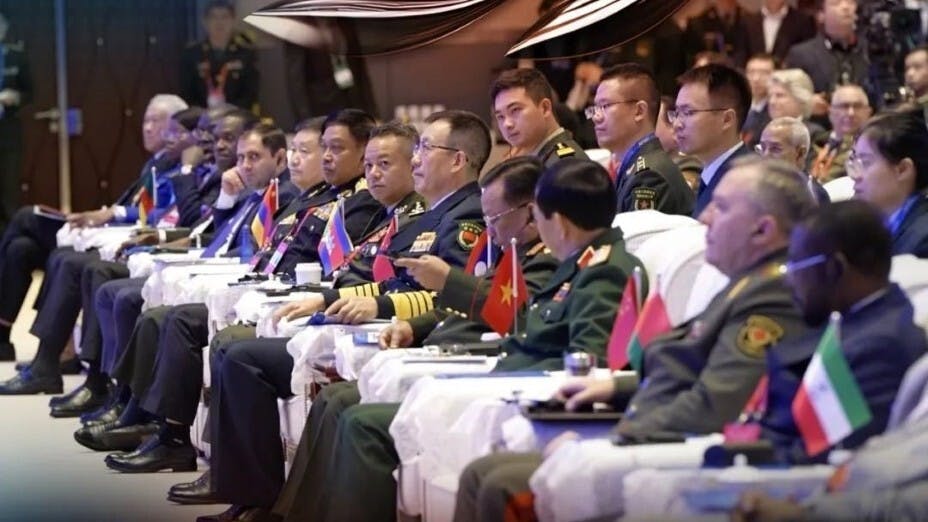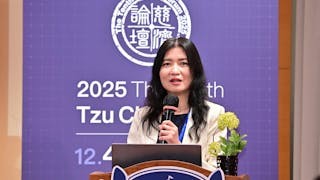9月13日在北京舉行的第11屆香山論壇,以軍事外交為特色,來自100個國家和組織的1800名代表參加。本屆論壇的主題是「共築和平、共享未來」。儘管該論壇代表了中國為各國之間軍事與安全的對話建立多邊平台,以加深了解及促進區域繁榮和穩定的意願,但軍事外交也有其限性。
董軍:反對泛化國家安全概念
中國新任國防部長董軍呼籲各國推動「和平發展、包容治理」,並說大國必須帶頭維護全球安全。董軍表示,解決烏克蘭危機、以巴衝突等熱門議題,促和促談是唯一出路。
董軍表示,國家安全概念不應泛化,現代科技應為人類福祉服務,各國應團結起來共同探討安全方案和解決方案。中方願落實與各方一道,繼續保持密切溝通,互學互鑒,鞏固發展既有合作成果,豐富合作新內涵,將軍事合作關係推上新高度,為構建「人類命運共同體」作貢獻。
董軍還表示,面對地區問題,區域內的國家應聯合自強,維護地區的和平安寧,「真正將地區的安全主導權牢牢掌握在自己手中」。這意味着面對南海議題,亞太地區國家應該自己解決爭端,不要讓任何域外國家插手進來。正當馬尼拉的強硬派似乎依賴與美國加強軍事關係,以抗衡所謂的「中國威脅」之際,董軍的說話似乎針對菲律賓。
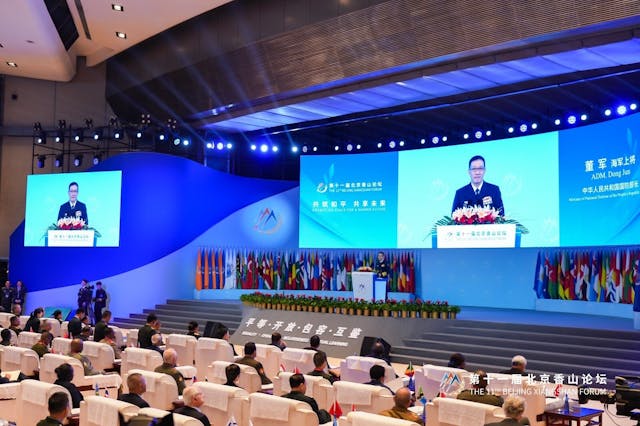
中菲交惡 中國對東盟國家格外重視
論壇開幕前一天,中央軍委副主席張又俠會見新加坡國防部長黃永宏和柬埔寨副首相兼國防大臣迪西哈。顯然,考慮到與菲律賓持續存在的南海島礁領土爭端,中國對東盟國家非常重視。鑑於張又俠最近會見了美國國家安全顧問沙利文,他最近在香山論壇上與其他國防部長的會面表明,他不僅在中國軍方,而且在北京領導層中發揮着愈來愈大的影響力和重要作用。
菲律賓沒有派代表團參加香山論壇,此舉是為了表達對中國因南海領土爭端和部分島礁海上對峙的不滿。然而,9月13日,中國外交部副部長陳曉東會見了菲律賓外交部副部長拉扎羅(Theresa Lazaro),雙方同意就海上事務進行對話。希望兩國海警能夠克制有關船隻的活動,防止領土爭端進一步升級,變為不必要的對抗和衝突。
立場各表 俄副防長轟美火力全開
美國代表團由負責中國、台灣和蒙古事務的副助理國防部長蔡斯(Michael Chase)率領。儘管傳媒報道指出,蔡斯低調且不願接受採訪,但他會見了中國軍方領導人,討論了從亞太地區和平,到美中能夠並將如何「管理競爭關係 」等一系列問題。蔡斯一定是從美國的角度提出問題,包括尊重主權、國際法、透明度和開放性、航行自由及所有國家和平解決爭端的平等權利。據報道,五角大廈對印太地區「中國脅迫活動的增加」感到擔憂。這種說法無疑遭到了中方的反駁,但香山論壇為美中雙方提供了一個表明立場、相互闡明觀點的機會。
俄羅斯國防部副部長亞歷山大·福明(Alexander Fomin)也出席了香山論壇。9月13日,他「批評執着維護全球優勢」的美國,正挑起台灣周邊地區緊張局勢。福明又說,美國正在推動亞太地區及其盟友日本的「軍事化」。他公開評價中國是俄羅斯在「世界舞台」上的「重要夥伴」之一,俄中關係是國家間合作的典範。福明並不迴避對美國提出批評,在他看來,「美國及其衛星國正試圖壓制不受其控制的任何獨立的政治、經濟、技術和發展中心」。以「保持其日益喪失的全球主導地位」。看來,福明已經成為香山論壇上對美國最嚴厲的批評者。
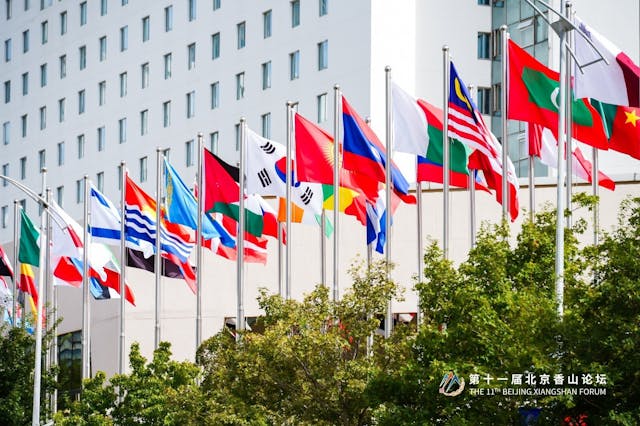
儘管香山論壇為軍事領導人和國防官員提供了一個可以淡化緊張的方式會面和討論問題的場所,但軍事外交仍存在嚴重局限性。
首先,如果各國的文職官員與軍隊中的鷹派或強硬派結盟,或未能加以遏制,軍事爭端、事故和衝突隨時都可能發生。因此,不同國家之間軍事領導人建立互信,仍只是個良好願望。軍事政治往往超出一個國家政治領導層的控制範圍,尤其是在軍隊主導和強大的國家。一個國家內部軍民關係的變化,也超出了另一個國家軍事領導人的控制和影響範圍,例如菲律賓一些軍事領導人對馬尼拉文官的態度日益強硬,更遑論中國的文官了。簡言之,無論政體是社會主義還是資本主義,軍隊在任何國家實際上都可能是一個龐大的利益集團。從外部看,跨國軍事外交影響力和有效性必受到很大限制。
其次,軍事行為實際上充滿了潛在的衝突、複雜且超越了諸如香山論壇等任何制度安排。美國海軍海豹六隊是一支執行隱秘任務的突擊隊,曾於2011年擊斃基地組織(al-Qaeda)首腦拉登,該部隊一直在接受訓練,執行在台海發生軍事衝突時支援台灣的任務。儘管大陸領導人公開要求美國停止向台灣提供武器,但海豹六隊的準備工作顯示,美國對大陸軍事意圖和動機的不信任。事實上,如果台灣在政治和軍事上超出大陸的「紅線」,大陸從未放棄使用武力對付台灣。同樣,中國最近對兩艘德國海軍船艦9月13日穿越台灣海峽的行為提出抗議。軍事行動變得如此複雜和直接,以至於香山論壇無法解決這些問題,儘管它為逐步但艱鉅的信任建立過程提供了常規環境。
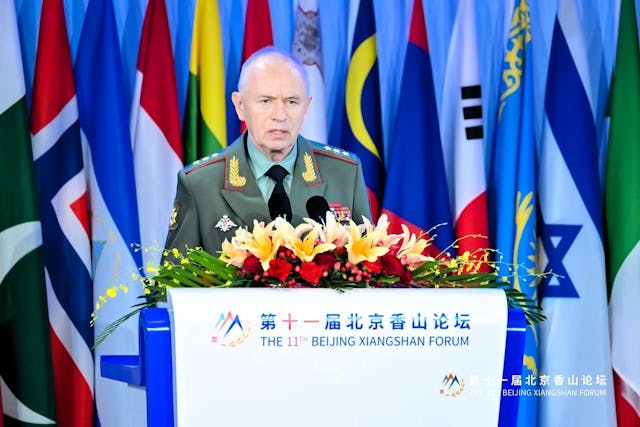
第三,軍事外交場合的作用,僅限於軍事領導人表達立場、重申聲明,以及熟悉其他國家軍事領導人,沒有真正的突破,無法解決國家與國家之間意識形態的分歧。例如,9月13日,中國駐美國大使謝峰表示,中美關係不能碰觸四條紅線:(一)台灣問題;(二)民主人權;(三)道路和制度;(四)發展權利。中美意識形態分歧嚴重,中國渴望在政治上統一台灣,而美國則認為台灣實行西式民主國,必須得到軍事支持;中國的民主人權概念也與美國有很大不同,美國的概念可以說是「普世的」,但對北京來說卻是強加給其他國家的;中國的發展道路是社會主義,美國實行的是資本主義民主,人權的範圍比中國傳統廣泛得多。最後,中國設想了「人類命運共同體」的社會主義世界觀,而美國則將具有普遍人權和自由的資本主義民主,視為國家發展的最終目標和終點。中美意識形態分歧如此之深,軍事外交從批判的角度看,對中美互信進程的影響微乎其微,更不用說對俄美軍事關係了。
第四,雖然香山論壇提供了有用的對話場所,但意識形態的論點卻沒有真正的解決。論壇的分組會議也出現了意識形態的爭論,例如美國亞太事務前副助理國務卿華自強(Rick Waters)和復旦大學學者吳心伯的交鋒。吳心伯指出,雖然美國認為與中國的關係是「競爭性的」,但中方認為美國的行為是「遏制」中國。華自強認為,雖然美方理解中方的這一觀點,但中方應該「聽其言、觀其行」。華自強和吳心伯的交鋒,暴露了中美之間深刻的意識形態分歧,但沒有任何真正的解決方案。
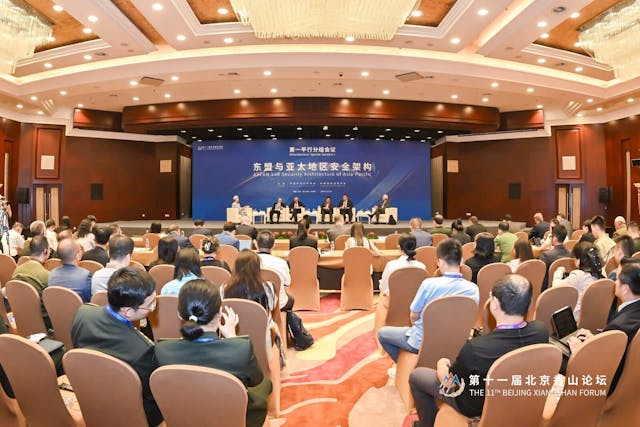
總之,國家之間和民族之間的軍事外交有其嚴重的局限性,香山論壇也不例外。然而,論壇為軍事領導人、專家和學者提供了一個定期的國家級場合,以增進了解、相互交流,並繼續就軍事和國家關係進行對話。儘管如此,軍事外交不僅呈現出軍事領導人表明立場、軍事專家闡述意識形態論點的循環模式,而且還顯示回歸到不同國家的文職官員來解決國家之間爭端,持續對話和堅持談判,維護主權、領土完整和軍事原則的必然趨勢。
Xiangshan Forum: The politics and limits of military diplomacy
The eleventh Xiangshan Forum, which was held in Beijing on 13 September, has been characterised by the conduct of military diplomacy involving 1,800 delegates from one hundred countries and organisations. The theme of this Forum is to construct peace and share a common future. Although the Forum represents China’s will to create a multilateral platform for military and security dialogue among countries and to foster deeper understanding for the sake of enhancing regional prosperity and stability, there are limitations on military diplomacy.
The new Chinese defence minister, Dong Jun, appealed to countries to promote “peaceful development and tolerant governance,” adding that big countries should take the lead in protecting global security. According to Dong, the Ukraine war and the Israeli-Palestinian conflicts necessitate solutions.
He remarked that the concept of national security should not be broadened excessively, that modern technology should be utilised for the well-being of humankind, and that countries should unite to discuss security plans and solutions. In this respect, China is keen to implement the consensus among the leaders of different countries, to maintain close communication and dialogue, to learn from each other, to consolidate the fruits of previous successes, to enrich the content of new cooperative pathways, to elevate military collaboration to a new height, to advocate world peace and world civilisation, and to construct “a common destiny of humankind.”
Dong also said that the security of countries in the regions concerned remains “in their own hands,” implying that, in the South China Sea dispute, countries in the Asia-Pacific region should solve their own disputes without involving any foreign states. His comment appeared to point to the Philippines at a time when Manila’s hardline elements seem to rely on the US to bolster their military relations to fend off the perceived “Chinese threat.”
One day before the inauguration of the Forum, the Chinese Central Military Commission deputy chair Zhang Youxia met the defence chiefs of Singapore, Ng Eng Hen, and Cambodia, Tea Seiha. Obviously, China attaches immense importance to the countries in ASEAN, considering the ongoing territorial dispute with the Philippines over the reefs in the South China Sea. Given that Zhang Youxia had recently met the US National Security Advisor, Jake Sullivan, his recent meetings with other defence chiefs at the Xiangshan Forum have indicated his increasingly influential and prominent role in not only the Chinese military but also the Beijing leadership.
The Philippines did not send a delegation to the Xiangshan Forum—a gesture of expressing displeasure with China over the territorial dispute and maritime standoff over some of the reefs in the South China Sea. However, on 13 September, the Chinese deputy foreign minister, Chen Xiaodong, met the Philippines undersecretary for foreign affairs, Theresa Lazaro, and both agreed to have dialogue on maritime matters. Hopefully, the coastguard vessels from both countries can rein in their activities to prevent further escalation of the territorial dispute into any unnecessary confrontation and conflict.
The US delegation was led by Michael Chase, the deputy assistant secretary of defence for China, Taiwan and Mongolia. Although media reports pointed to his low profile and reluctance to be interviewed, he met Chinese military leaders to talk about a range of issues, from peace in the Asia-Pacific region to how both the US and China can and will “manage their competitive relations.” Chase must have raised issues from the US perspective, including respect for sovereignty, international law, transparency and openness, freedom of navigation, and the equal rights of all countries to resolve disputes peacefully. It was reported that the Pentagon is concerned about “increasing Chinese coercive activities” in the Indo-Pacific region (Oriental Daily, 14 September 2024, A17). This argument is undoubtedly refuted by the Chinese side, but the Xiangshan Forum provides an opportunity for both the US and Chinese sides to position themselves and explain their stances to each other.
The Russian deputy defence minister, Alexander Fomin, also attended the Xiangshan Forum. On 13 September, he criticised the US for being “obstinate” in maintaining its global advantages and “instigating” tense relations along the Taiwan border (Hong Kong Economic Times, 14 September 2024, A8). Fomin added that the US is promoting the “militarisation” of the Asia-Pacific region and its ally, Japan. He openly commented that both Russia and China are “important partners” in “the world arena,” and that Russo-Chinese relations are a good example of cooperation between countries. Fomin did not shy away from providing a critique of the US, which, to him, “is suppressing any independent political, economic, technological and developmental centre outside the control of the US and its satellite states.” This way, the US and its “satellite states” can and will “maintain their leading status that has been lost in the world.” It seems that Fomin has become the most severe critic of the US at the Xiangshan Forum.
Although the Xiangshan Forum provides a setting in which military leaders and defence officials can meet and discuss issues in such a way as to minimise tensions, there are severe limitations to military diplomacy.
First, military disputes, accidents and conflicts can occur at any time if the civilian leaders of countries form an alliance with, or fail to rein in, the hawkish or hardline elements of the military. As such, trust-building among military leaders across different nations remains an ideal hope. Military politics may often be beyond the easy control of a country’s political leadership, especially where the military is dominant and powerful. The dynamics of civilian-military relations within a country are also beyond the control and influence of another country’s military leaders, such as the increasingly hawkish gestures of some military leaders in the Philippines vis-à-vis the civilian leadership in Manila—not to mention the civilian leadership in China. In short, the military is potentially and practically a powerful interest group within any country, regardless of whether the regime is socialist or capitalist. Externally, military diplomacy across nations is quite constrained in its impact and effectiveness.
Second, military actions are potentially and practically conflict-ridden, complex and beyond any institutional setting, such as the Xiangshan Forum. The US Navy’s SEAL Team Six, a clandestine commando unit that killed Osama bin Laden in 2011, has been training for missions to support Taiwan in the event of military conflict across the Taiwan Strait. Even though Chinese leaders have openly demanded that the US terminate its weapons provision to Taiwan, the SEAL Team Six’s preparatory work points to US distrust of Chinese military intentions and motivations. In fact, China has never renounced the use of military force to deal with Taiwan should the island politically and militarily go beyond the mainland’s “red lines.” Similarly, the Chinese side recently protested the actions of two German naval vessels that sailed across the Taiwan Strait on 13 September. Military actions have become so complex and immediate that the Xiangshan Forum cannot tackle them, although it provides a regular setting for a gradual but arduous process of trust-building.
Third, military diplomacy is confined to a setting in which military leaders position themselves, reiterate their statements, and familiarise themselves with the counterparts of other countries without any real breakthrough, as it cannot resolve the ideological divide between nations. For example, on 13 September, the Chinese Ambassador to the US, Xie Feng, said that Sino-US relations are shaped by four issues: (1) Taiwan, (2) democracy and human rights, (3) paths and systems, and (4) development and rights. China and the US are ideologically diverging in a serious manner. China is eager to absorb Taiwan politically, while the US sees Taiwan as a western-style democracy that must be supported militarily. China’s concepts of democracy and human rights are also hugely different from the American concepts, which are arguably “universal” but are, to Beijing, being imposed on other countries. China’s path of development is socialist, but the US follows a capitalist democracy in which the scope of human rights is much broader than Chinese tradition. Finally, China envisions a socialist worldview with “a common destiny for humankind,” while the US sees capitalist democracy with universal human rights and freedom as the ultimate objectives and endpoint of national development. Ideological divergence between China and the US has become so profound that military diplomacy, from a critical perspective, has minimal impact on the Sino-US trust-building process, let alone on Russo-US military relations.
Fourth, although the Xiangshan Forum provides a useful setting for dialogue, ideological debates have emerged without real solutions. Group discussions at the Forum have shown ideological debates, such as the arguments between Rick Waters, the former deputy secretary of Asia-Pacific affairs, and Wu Xinbo, an academic from Fudan University. Wu argued that while the US perceives its relations with China as “competitive,” the Chinese side views US actions as “containing” China (Ming Pao, 13 September 2024, A15). Waters contended that although the US understands this Chinese perspective, the Chinese side should “listen to the remarks and observe the actions” of the US. The debate between Waters and Wu revealed the deep ideological divide between the US and China without any real solutions.
In conclusion, military diplomacy among states and nations has its severe limitations. The Xiangshan Forum is no exception to this rule. However, the Forum provides a regular, national-level setting for military leaders, experts and academics to enhance their understanding, engage with each other, and continue their dialogue on military affairs and state-to-state relations. That said, military diplomacy tends to display not only a cyclical pattern of military leaders stating their positions and military experts articulating their ideological arguments, but also an inevitable trend of reverting to civilian leaders of different countries to settle their state-to-state disputes over sovereignty, territorial integrity and military principles through national-level diplomacy, continuous dialogue and persistent negotiations.
原刊於澳門新聞通訊社(MNA)網站,本社獲作者授權轉載。(原文按此)



